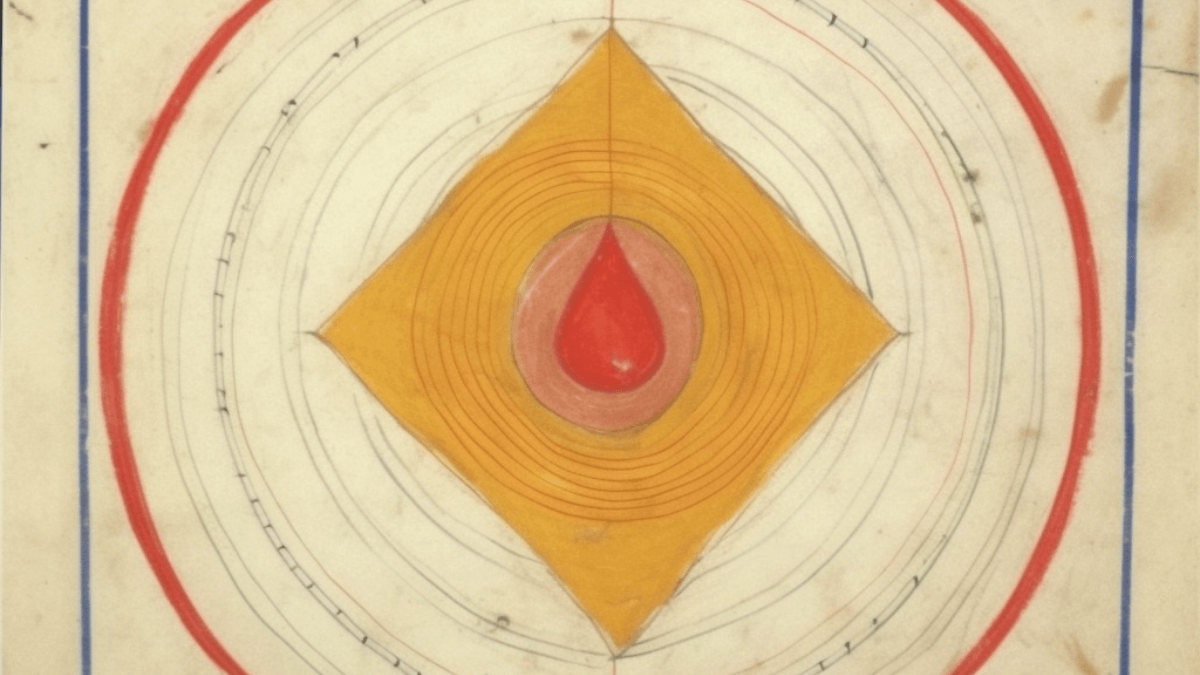Inside of us lies the raw, unadulterated pulse of desire. Outside lies the world of phenomena. Our life is the mutually influencing conversation that happens between these two poles.
This seamless and dynamic process is what makes up the Erotic mind, where we have a sense of being immersed in the eternal, where we are interconnected with all things in dynamic silence. The Erotic mind is a unified self where attention is immersed into the body.
The tumescent mind is a filter that lies in between the deeper desire and the environment. We can regard it as a filter that has a charged response to everything coming in and going out. That charge is either positive, negative, or does not register, based on associations we have with the stimuli or impulse. A negative charge suggests an automatic contraction. A positive charge suggests grasping. An unregistered charge suggests ignoring or tuning out. The mind experiences this as “do not like,” “like,” and “ignore.”

Homeostasis is the process by which all living organisms self-regulate. We sweat when we are too hot and shiver when we are too cold. We get hungry when we need fuel and feel full when we have eaten enough. If we become very scared, very tired, very excited, or very anything, the body sends signals and takes corrective measures to return to a more moderate state as soon as possible. Bodies reject extremes in favor of a mid-range experience that feels “just right.” Identity is to the human mind what homeostasis is to the body. Identity erects boundaries around the range of experience it calls “me.” It stays within that range by repelling anything—thoughts, emotions, sensations, activities—that lies outside of it. It calls the familiar “comfortable,” and it feels discomfort around the unfamiliar, rejecting it as “not me.”
In the body, our immune system is responsible for sorting the “me” from the “not me,” producing an immune response whenever a foreign organism is detected. In our minds, it is words and the implied and overt beliefs behind them that precipitate an immune response.
Beliefs spare us from the effort of investigating these matters and coming to an independent conclusion.
We do not examine the issue because we have a knee-jerk reaction to the entire idea it suggests. We have trouble even perceiving aspects of the object that differ from the ideas we already hold because the immune response shuts down our perceptual faculties the moment it appears. Like antibodies rushing to the site of an infection, something in us says, “Don’t let that in.” The immune response is so immediate that most of the time we don’t even notice it’s happening. Unexpected information simply does not register unless it is so drastic it knocks us off our feet.

When that happens, we experience the unexpected as either an epiphany or a trauma. The Erotic state is when we have built up enough Erotic attention—attention that is immersed in the body and is capable of enveloping the charge—to the point where it can be discharged within the body without reactivity, without the compulsion to move “away from,” “toward,” or to “ignore,” as the charge habitually instructs.
We are no longer at the mercy of the embedded response or interpretation. While our body’s immune system acts on our behalf, the mind’s immune system does not. This tumescent filter is what causes the immune response, and is simply a collection of charges that attracts similar charge, repels opposing charge, and ignores charge that would threaten it. When it operates unconsciously, we call it identity.
The more rigid we are in our needs, responses, opinions, behaviors, and demands, the more charge has been collected. A brittleness and inflexibility exists within us even when we pretend to be open-minded. It is with Erotic attention that we can both discharge the normal flow of experience, and begin to clear the accreted charge built up in the tumescent filter that lies between the body and attention. The Erotic mind converts the collected charge—which occurs as stagnation—into dynamic flow.
The activation of the Erotic mind turns up the power on the waves that flow out and draw in. The wall of tumescence cannot stand the force and becomes absorbed, broken up, and made dynamic once again.
The experience has a seamlessness to it where there is no distinction between incoming or outgoing, reception or response.

The charge goes off inside a giant pool of attention, and while it is still experienced as a sensation, it does not define our experience. What defines our experience—when our attention is of adequate size—is this overall feeling of being seated in the body, in the eternal, connected to all things, able to move and sense with the breadth of space and time. The Erotic mind is marked by this spaciousness.
When, on the other hand, the attention is not bigger than the charge, we “do” what the charge says. “We” get absorbed by the charge rather than absorb it.
There is no space between stimuli/impulse and response as our (relatively) small attention is now inside of the charge. It “takes” us. We have no volition.
An impulse happens or stimuli enters and we grasp, push away, or check out, usually followed by justification and rationalization. An event happens that our attention does not rise to meet and we seem to “have no choice” but to retract and feel anger, to pump up the sensation, or to rise up into the mind and get lost in thought. Then sets in the justification—“because it was sloppy on their part,” “because I am tired,” “because this is meaningless”—adding another layer of charge to the tumescence.

Or, if it happens at the level of impulse, the pure signal sent by the impulse becomes distorted and taints the resulting outgoing response. We will either exaggerate our response, under-respond, or simply go limp. We scramble the signal in such a way that the world cannot “get a read on us” and thus cannot stroke us with the resonance that will open us as the impulse requires we open ourselves further, slow ourselves down, or change our approach in some way.
One may think that when we discharge our habituated positions, we become watered-down amoebas. Quite the opposite is true. Instead, we have a power, a clarity, and a flexibility that need no management. The mind finds silence because it does not need to keep propping itself up to maintain itself. It is who we are when we wholly let go. There is nothing to lose so there is nothing to protect.
This state is marked by paradox; we know so deeply who we are that we do not need to assert who we are. We know what we know down to the bowels in a way that cannot be denied, and therefore can be open to all possibilities. A galvanizing force will naturally attract what is aligned, move out what is not, and register with neutrality what is unfamiliar. We do this by allowing the force of the Erotic to build until it turns on. We do this by learning to reverse the tumescent suggestions to strokes; we open where we would contract, we push out where we would grasp, and we draw attention back to the point of connection when it “tunes out” by going into thoughts.